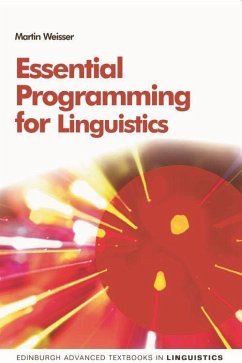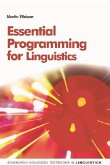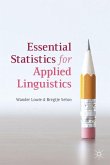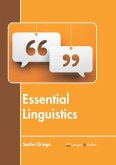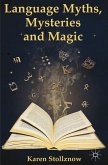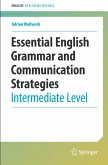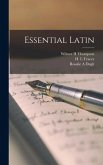This book introduces programming for linguists. Linguistic programming is becoming an important topic for advanced students of linguistics, especially those that are trying to process corpus materials or literary texts for B.A. dissertations, Ph.D. theses, or advanced research. This volume assumes no background knowledge of programming. It introduces linguists to the basic notions and techniques needed for linguistic programming and develops their understanding of electronic texts. Conversely, it also helps computer scientists who are unfamiliar with language processing and wonder which aspects of linguistics may be relevant to conducting intelligent, rather than purely "statistical" language processing. Many examples based on diverse topics demonstrate the immediate applicability of the concepts taught.
Edinburgh Advanced Textbooks in Linguistics Series editors: Peter Ackema and Mitsuhiko Ota This series supports the study of core topics that form substantial and identifiable parts of Linguistics degree courses as taught in the later years of undergraduate study. Each volume provides an in-depth introduction to a particular linguistic subdiscipline, while also engaging with recent research on the subject. Essential Programming for Linguistics Martin Weisser A gentle introduction to programming for students and researchers interested in conducting computer-based analysis in linguistics, this book is an ideal starting point for linguists approaching programming for the first time. Assuming no background knowledge of programming, the author introduces basic notions and techniques needed for linguistic programming and helps readers to develop their understanding of electronic texts. The book includes many examples based on diverse topics in linguistics in order to demonstrate the applicability of the concepts at the heart of programming. Practical examples are designed to help the reader to: *Identify basic issues in handling language data, including Unicode processing *Conduct simple analyses in morphology/morphosyntax, and phonotactics *Understanding techniques for matching linguistic patterns *Learn to convert data into formats and data structures suitable for linguistic analysis *Create frequency lists from corpus materials to gather basic descriptive statistics on texts *Understand, obtain and 'clean up' web-based data *Design graphical user interfaces for writing more efficient and easy-to-use analysis tools. Two different types of exercise help readers to learn to interpret and understand illustrative sample code, and then develop algorithmic thinking and solution strategies through turning a series of instructions into sample programs. Readers will be equipped with the necessary tools for designing their own extended projects. Key Features: *Ide
Hinweis: Dieser Artikel kann nur an eine deutsche Lieferadresse ausgeliefert werden.
Edinburgh Advanced Textbooks in Linguistics Series editors: Peter Ackema and Mitsuhiko Ota This series supports the study of core topics that form substantial and identifiable parts of Linguistics degree courses as taught in the later years of undergraduate study. Each volume provides an in-depth introduction to a particular linguistic subdiscipline, while also engaging with recent research on the subject. Essential Programming for Linguistics Martin Weisser A gentle introduction to programming for students and researchers interested in conducting computer-based analysis in linguistics, this book is an ideal starting point for linguists approaching programming for the first time. Assuming no background knowledge of programming, the author introduces basic notions and techniques needed for linguistic programming and helps readers to develop their understanding of electronic texts. The book includes many examples based on diverse topics in linguistics in order to demonstrate the applicability of the concepts at the heart of programming. Practical examples are designed to help the reader to: *Identify basic issues in handling language data, including Unicode processing *Conduct simple analyses in morphology/morphosyntax, and phonotactics *Understanding techniques for matching linguistic patterns *Learn to convert data into formats and data structures suitable for linguistic analysis *Create frequency lists from corpus materials to gather basic descriptive statistics on texts *Understand, obtain and 'clean up' web-based data *Design graphical user interfaces for writing more efficient and easy-to-use analysis tools. Two different types of exercise help readers to learn to interpret and understand illustrative sample code, and then develop algorithmic thinking and solution strategies through turning a series of instructions into sample programs. Readers will be equipped with the necessary tools for designing their own extended projects. Key Features: *Ide
Hinweis: Dieser Artikel kann nur an eine deutsche Lieferadresse ausgeliefert werden.

